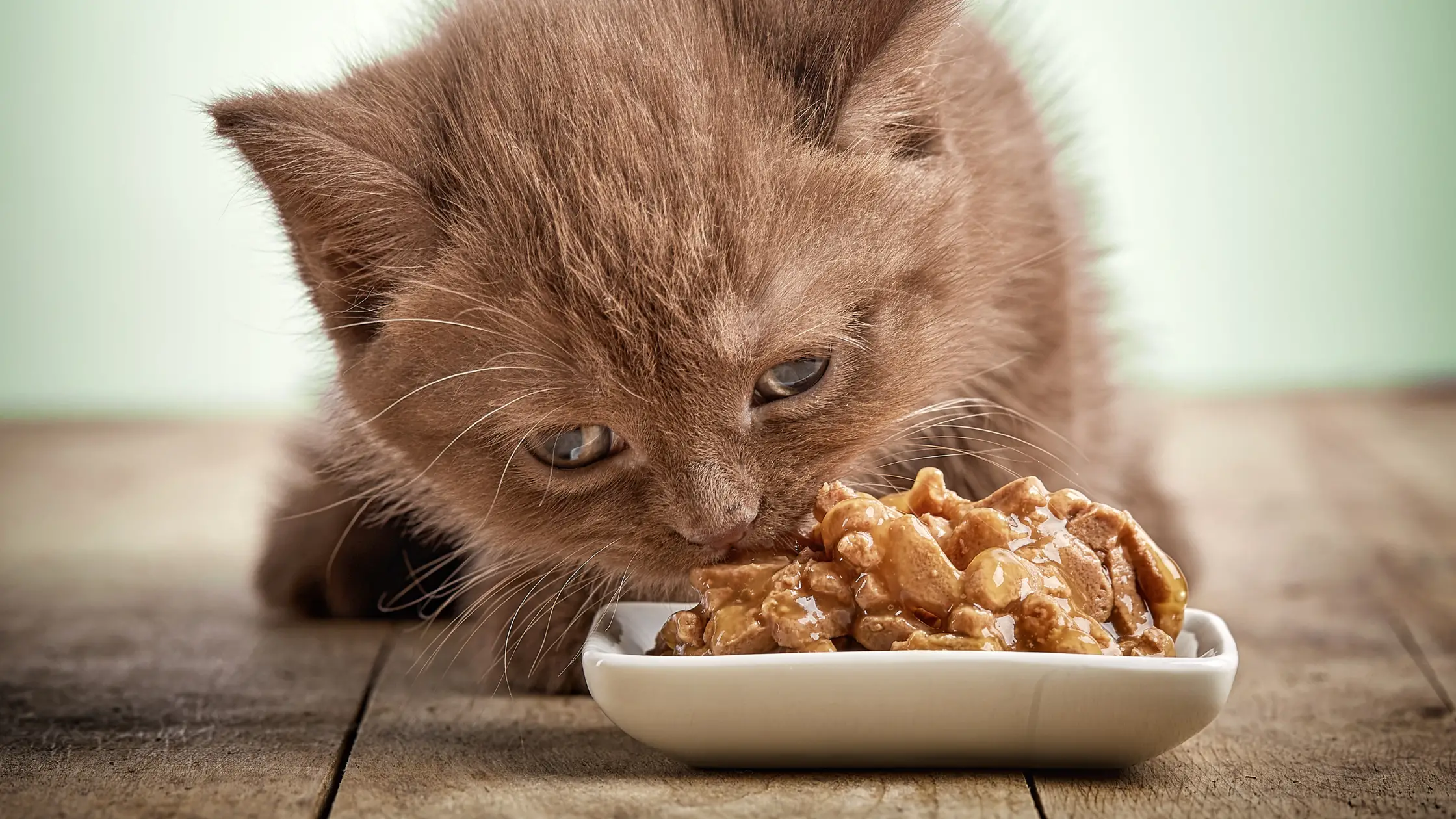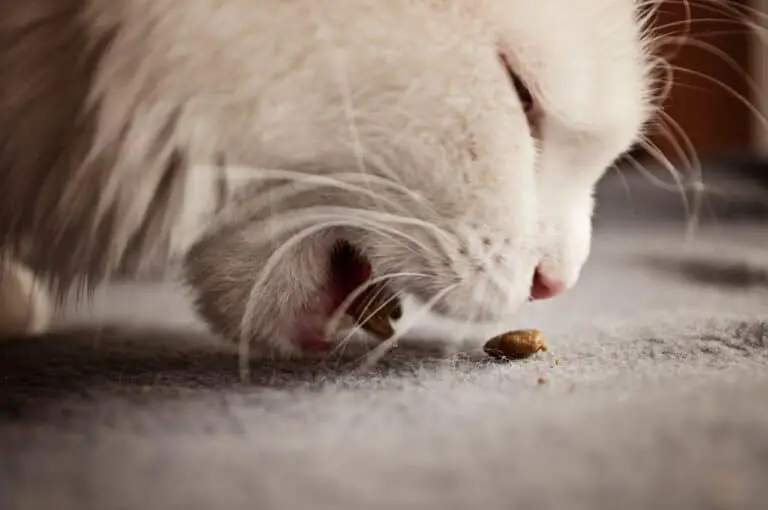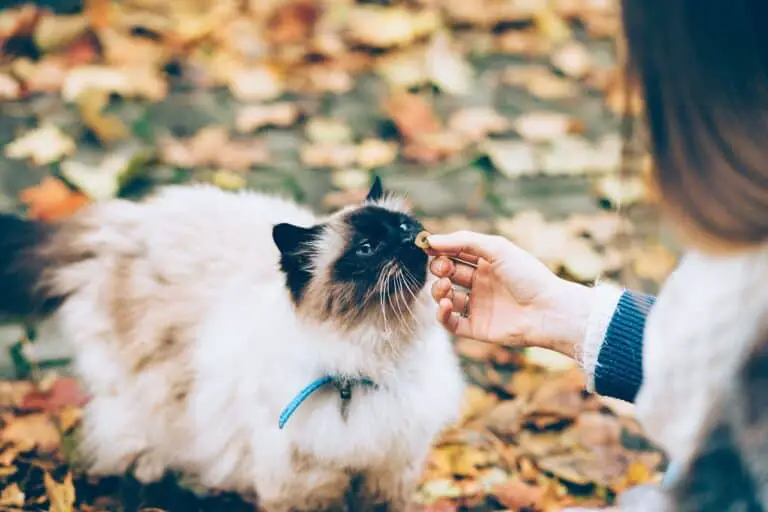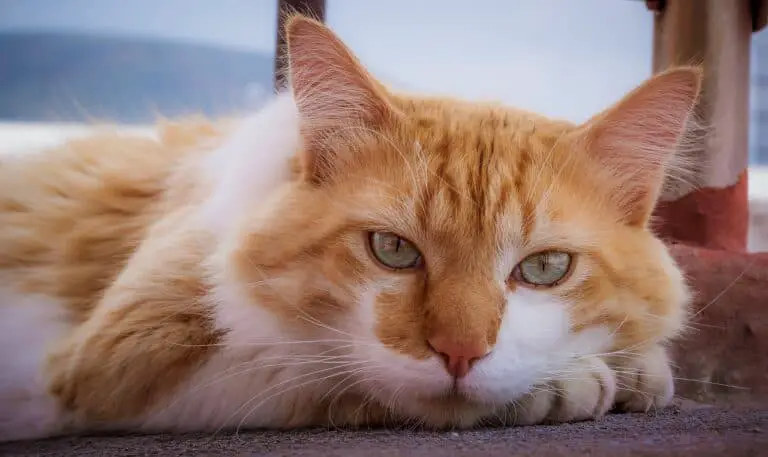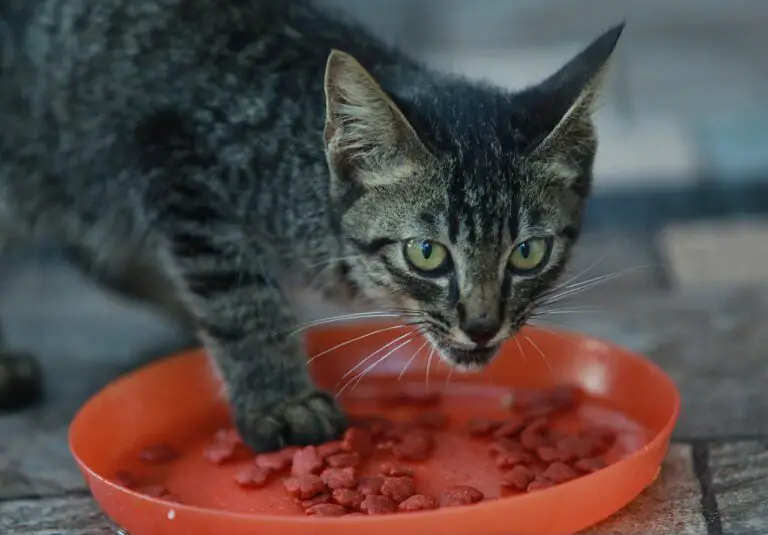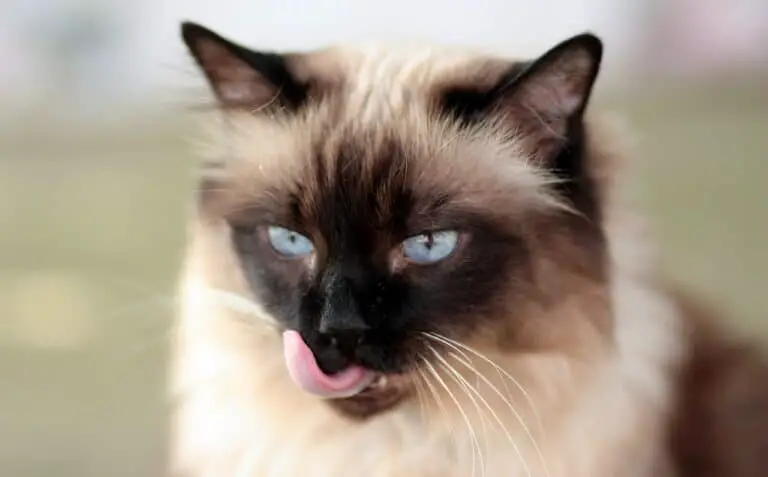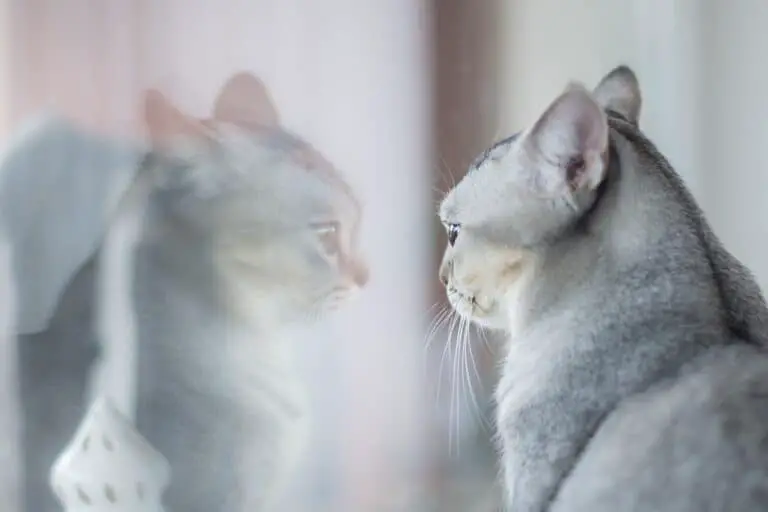WHAT HAPPENS IF A CAT EATS EXPIRED CAT FOOD? 4 REMEDIES
What happens if a cat eats expired cat food? Expired cat food may contain harmful bacteria or toxins that can lead to digestive problems, such as vomiting and diarrhea. In some cases, the food may even be contaminated with mold or other harmful substances, which can cause more severe health issues.
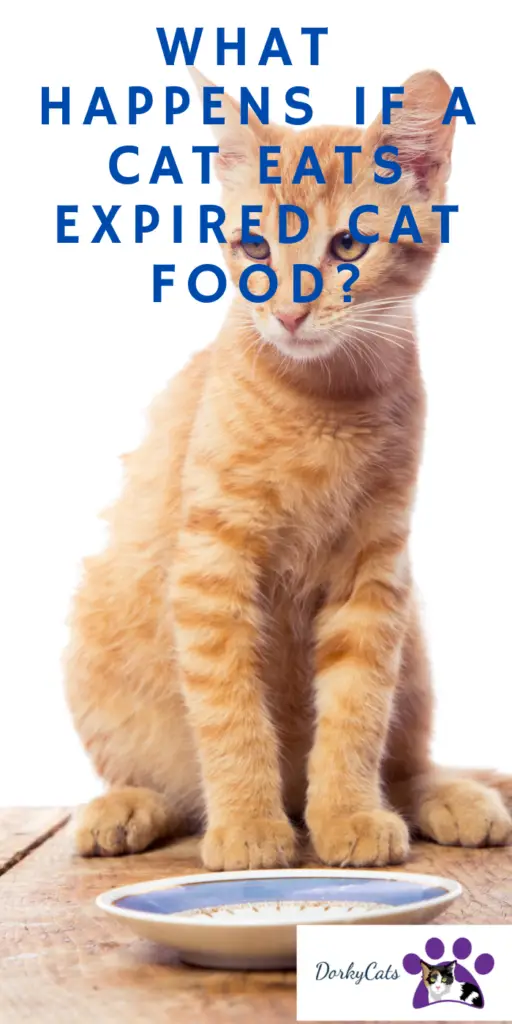
WHAT HAPPENS IF A CAT EATS EXPIRED CAT FOOD?
If a cat eats expired cat food, it could potentially cause a range of health problems. The severity of the health problems will depend on several factors, such as the type of food, how long it has expired, and the amount consumed.
If your cat has eaten expired cat food, monitoring them closely for any signs of illness, such as vomiting, diarrhea, lethargy, or loss of appetite, is important. If you notice any of these symptoms, contact your veterinarian right away.
WHICH TYPES OF HEALTH ISSUES CAN CAUSE EXPIRED CAT FOOD?
Expired cat food can potentially cause several health issues for your cat, as the food may no longer be safe or nutritious. Some of the health issues that can be caused by expired cat food include:
- Gastrointestinal upset: Expired cat food can contain bacteria, toxins, or mold that can cause gastrointestinal upset, such as vomiting, diarrhea, or stomach pain.
- Nutritional deficiencies: Over time, the nutrients in expired cat food can break down or become less bioavailable, leading to nutritional deficiencies or imbalances.
- Food poisoning: If the expired cat food is contaminated with harmful bacteria or toxins, it can cause food poisoning, which can lead to more severe symptoms like fever, lethargy, or dehydration.
- Allergic reactions: Expired cat food can potentially contain allergens that have become more concentrated or potent over time, triggering allergic reactions in cats with food sensitivities.
- Tooth decay: Dry cat food that has gone stale or rancid can potentially cause tooth decay or other dental issues, as the texture and consistency of the food can change over time.
Overall, it’s important to be cautious and mindful of the expiration dates of your cat’s food, as feeding them expired food can potentially lead to various health issues and discomfort.
WHAT CAN I DO TO REMEDY IF MY CAT ATE EXPIRED CAT FOOD?
If your cat has eaten expired cat food, the first thing to do is to monitor them closely for any signs of gastrointestinal upset, such as vomiting, diarrhea, or stomach pain. If you notice any of these symptoms, it’s best to contact your veterinarian for advice on how to proceed.
Here are some steps you can take to remedy the situation if your cat has eaten expired cat food:
- Check the expiration date: Take note of the expiration date of the cat food your cat has eaten and check if it is still within its shelf life. If it is, monitor your cat for any illness or discomfort.
- Offer fresh water: Encourage your cat to drink fresh water to help flush out any potential toxins or bacteria from their system.
- Check for signs of dehydration: If your cat is showing signs of dehydration, such as dry gums, sunken eyes, or lethargy, offer them water and consider taking them to the vet.
- Consider a bland diet: If your cat is experiencing gastrointestinal upset, you may want to switch to a bland diet of boiled chicken and rice until its symptoms subside.
- Contact your vet: If your cat is experiencing severe symptoms, such as persistent vomiting or diarrhea, or has a pre-existing medical condition that makes them more susceptible to foodborne illness, contact your veterinarian for guidance on how to proceed.
WHAT ARE THE SYMPTOMS OF FOOD POISONING IN CATS?
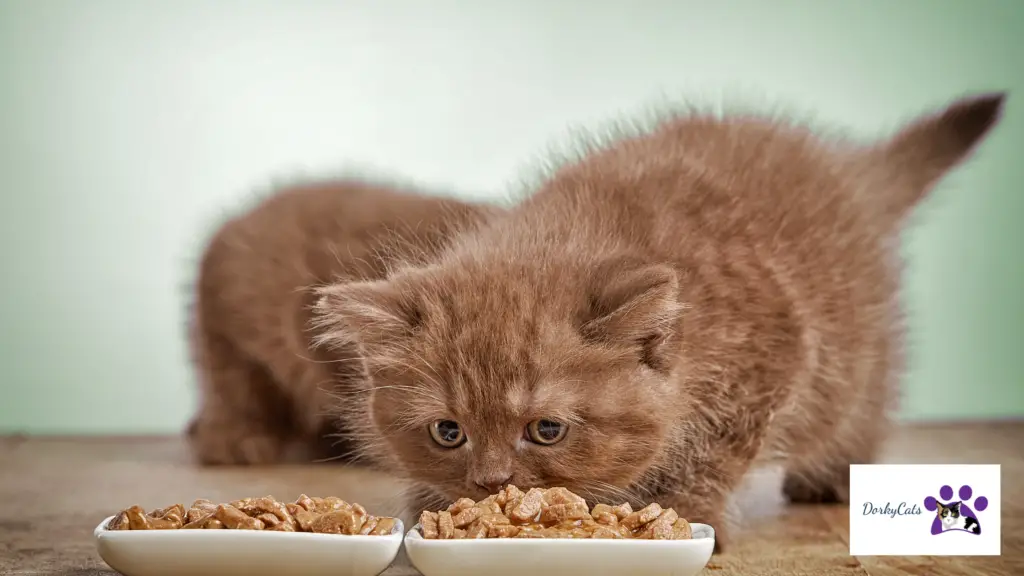
Food poisoning in cats can occur when they eat food that has been contaminated with harmful bacteria, toxins, or other substances.
The symptoms of food poisoning in cats can vary depending on the type and severity of the contamination, but common symptoms include the following:
- Vomiting: Cats with food poisoning may frequently vomit, sometimes even after drinking water.
- Diarrhea: Cats with food poisoning may experience diarrhea, which may be watery, bloody, or have a foul odor.
- Loss of appetite: Cats with food poisoning may refuse to eat or show less interest in food than usual.
- Lethargy: Cats with food poisoning may be weak, tired, and less active than usual.
- Dehydration: Vomiting and diarrhea can lead to dehydration in cats, which can cause symptoms such as dry mouth, sunken eyes, and lethargy.
- Abdominal pain: Cats with food poisoning may exhibit signs of abdominal pain, such as restlessness, pacing, or hunching over.
If you suspect your cat may have food poisoning, it’s essential to seek veterinary care immediately. Food poisoning can cause severe complications and can be life-threatening if left untreated.
Your veterinarian can perform tests and provide supportive care, such as fluid therapy and medications to control vomiting and diarrhea, to help your cat recover.
IS IT BAD TO GIVE CATS EXPIRED FOOD?
Giving cats expired food is not recommended, as it may pose health risks to them. Expired cat food may contain harmful bacteria, toxins, or mold that can cause digestive problems, such as vomiting, diarrhea, and abdominal pain.
Additionally, the nutritional value of expired cat food may be compromised, as the ingredients may have degraded over time.
To ensure your cat’s health and well-being, it’s important to regularly check the expiration dates on all of their food and treats and discard any expired items.
It’s also a good idea to store your cat’s food in a cool, dry place away from direct sunlight to help preserve its freshness.
HOW LONG DOES CAT FOOD LAST UNOPENED?
The shelf life of unopened wet cat food can vary depending on the brand, the specific product, and the storage conditions.
Most manufacturers recommend consuming the food within 1-3 years of production if it is unopened and stored correctly in a cool, dry place.
However, checking the expiration or “best by” date printed on the can or package is always a good idea to ensure the food is still safe to consume.
If you notice any signs of damage or contamination to the packaging or the food, such as bulging, rusting, or an off odor or color, it’s best to err on caution and not feed the food to your cat.
DOES DRY CAT FOOD EXPIRE?
Yes, dry cat food can expire. Like any other food product, dry cat food has a limited shelf life and can go bad over time. The expiration date or “best by” date can be found on the package or bag of the dry cat food and indicates the date until the food is expected to retain its nutritional value and quality.
The shelf life of dry cat food can vary depending on the brand, the ingredients, and the storage conditions.
Most manufacturers recommend using dry cat food within six months to a year from the production date, as long as it has been appropriately stored in a cool, dry place and the packaging remains intact.
After this time, the food may start to lose its nutritional value and quality and become stale or rancid, making it less appealing to your cat.
If you’re unsure about the freshness or safety of your cat’s dry food, it’s always best to err on caution and replace it with a fresh batch.
It’s also essential to store dry cat food properly by keeping it in a sealed container in a cool, dry place, away from sunlight and humidity.
CAN THE STORE SELL EXPIRED CAT FOOD?
It is not legal for stores to sell expired cat food, as it can be unsafe for pets to consume.
Most countries have laws and regulations requiring pet food manufacturers to include expiration or “best by” dates on their products and ensure that they meet specific safety and quality standards.
Retailers are also typically required to remove expired products from their shelves and dispose of them properly.
However, it is still possible for expired cat food to end up in stores if there is a mistake in the inventory management system or if the store has not diligently checked the expiration dates of their products.
As a pet owner, it’s always a good idea to check the expiration date on any pet food before purchasing it and to inspect the packaging for signs of damage or spoilage. If you notice expired cat food on the shelves of a store, it’s best to bring it to the attention of a store employee or manager so that they can remove it from the stands.
HOW TO STORE WET AND DRY CAT FOOD?
Proper cat food storage is essential to stay fresh and safe for your cat. Here are some tips on how to store both wet and dry cat food:
- Store dry cat food in a cool, dry place: Dry cat food should be stored in a cool, dry place, such as a pantry or cupboard, away from direct sunlight and heat sources. This will help to prevent the food from spoiling and allow it to maintain its nutritional value.
- Keep dry cat food in its original packaging: The original packaging of dry cat food is designed to keep the food fresh and protected from the elements. If you need to transfer the food to another container, ensure it is airtight and clean.
- Store wet cat food in the refrigerator: Once opened, wet cat food should be stored in the fridge in an airtight container or covered with plastic wrap. It is essential to use the food within a few days of opening to prevent it from spoiling.
- Keep wet cat food at a consistent temperature: Wet cat food should be kept at a constant temperature, ideally around 40-45°F (4-7°C), to help prevent bacterial growth and keep the food fresh.
- Discard any uneaten cat food: Any uneaten cat food, whether wet or dry, should be discarded after a specific time. Check the packaging for instructions on how long the food can be safely stored once opened.
By following these tips, you can help ensure that your cat’s food stays fresh and safe to eat, which can help promote their overall health and well-being.
LEGGI ANCHE: CAN CATS EAT SOY SAUCE? 5+ FACTS TO KNOW

